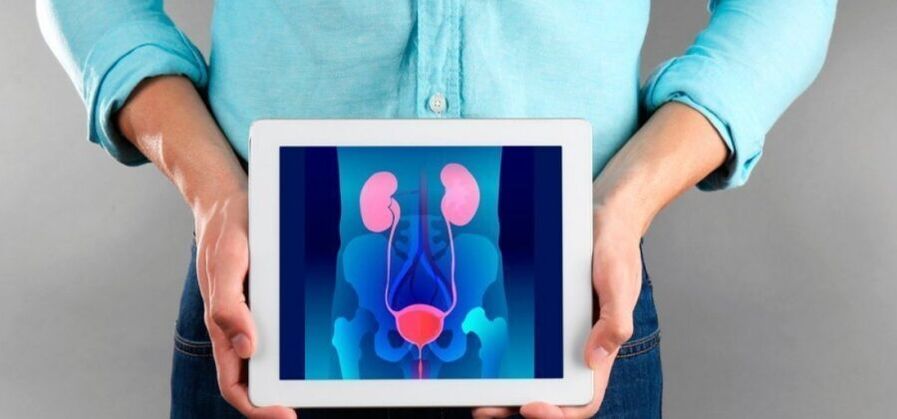
Inflammation of the prostate gland is one of the most common diseases of urology. Many representatives of the strong half of humanity prefer to keep silent about this problem, turning to a specialist even when it is impossible to bear the pain. There is nothing shameful about prostatitis. Comprehensive treatment of prostatitis and a comprehensive approach to therapy are necessary. The sooner you start therapy, the better.
The main causes of prostatitis
Inflammatory processes in the prostate gland occur due to:
- infections when the pathogen enters the blood and spreads throughout the body;
- weakened protective functions of the body, often caused by sleep and wakefulness disturbances, nutrition, bad habits, chronic stress;
- blood circulation disorders due to problems with the heart, nervous system, physical inactivity;
- lack of regular sexual intercourse, leading to stagnation;
- alcohol and smoking abuse due to weakened immunity and nervous disorders;
- violation of the basics of proper nutrition, consumption of foods with a high content of concentrates and chemically treated vegetables and fruits;
- phimosis - a pathology in which the head of the penis is not fully open if it is not eliminated at a young age;
- stones in the prostate gland, provoking the start of inflammatory processes;
- hormonal disorders and pathological abnormalities in the structure of the penis.
A sedentary lifestyle, characteristic of many professions, also leads to prostatitis. Drivers and office workers who spend a lot of time on foot are more susceptible to the disease than men who lead an active lifestyle and are forced to move a lot for work.
Types of prostatitis
Diseases of the genitourinary system caused by inflammation of the prostate gland are classified according to the following criteria:
- The form of the course is acute and chronic. The first is characterized by different symptoms, but almost always a man feels discomfort in the pelvic area even when he is at rest, and it can be observed at any age. The symptoms simply cannot be ignored. If the patient does not go to the doctor and tries to treat himself, it becomes chronic. This form is most often observed in representatives of the strong half over 50 years old and is practically asymptomatic; it is usually discovered during examinations for comorbidities.
- The cause of the show. Inflammatory processes in the prostate gland can be different. There are bacterial, infectious, calculous, purulent and congestive prostatitis. Depending on the type, additional therapy methods and medications are selected to eliminate the root cause.
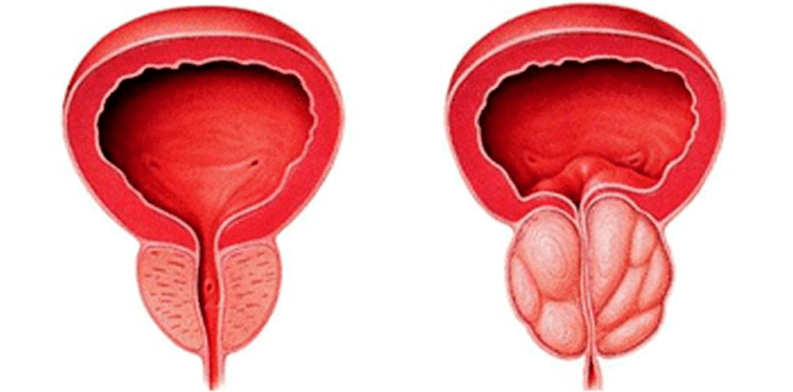
The form and cause of the development of prostatitis are identified through laboratory tests prescribed for a man with suspected inflammation of the prostate gland.
Signs of prostatitis
The clinical picture of prostate disease is quite clear and can rarely be confused with another disease. Men suffering from prostatitis experience:
- pain over the pubic bone;
- discomfort in the hip area;
- frequent urination, accompanied by painful sensations during stress and hypothermia;
- sleep disorders;
- problems with erection;
- premature ejaculation;
- increased sweating;
- the presence of uncharacteristic discharge;
- body temperature is slightly more than 37 degrees in the evening.
Therapy is prescribed taking into account the predominant pain, urination or erectile dysfunction and the course of the disease.
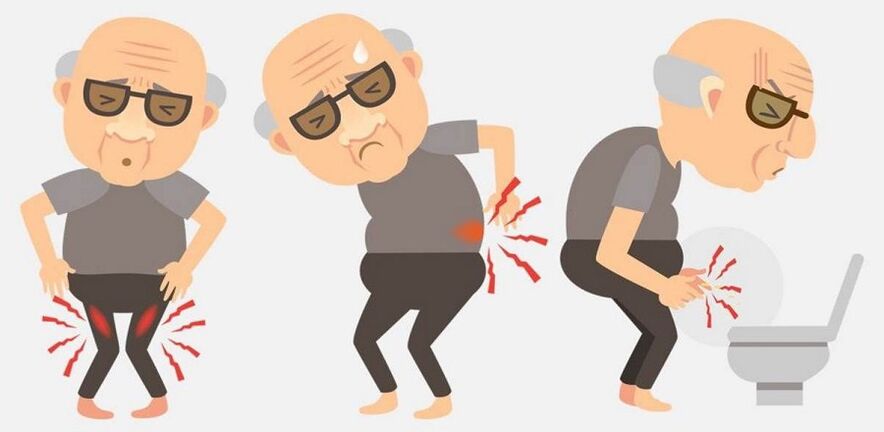
Description of an integrated approach to treatment
Successful treatment of prostatitis depends on the right approach. The acute form involves treatment with drugs and other procedures as needed. Chronic treatment is more difficult and takes longer.
The main elements of comprehensive treatment
If signs of the disease appear, the patient is prescribed an examination. A laboratory study of prostate secretions, MRI and ultrasound of the organ is performed. Based on the data obtained, therapy is prescribed. It aims to eliminate the cause of the disease and relieve the symptoms.
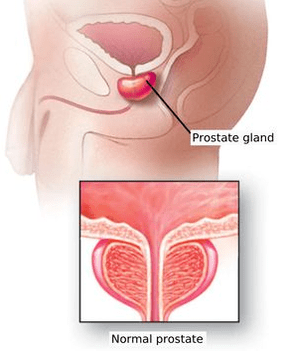
Complex treatment includes a number of measures, each of which requires detailed study:
- Course of medications. Chosen according to the form of the disease. Infectious requires the use of antibacterial drugs, and non-infectious - anti-inflammatory, which allow successful symptomatic therapy, as well as normalization of peristaltic function.
- Increase immunity. Improving the protective functions of the male body is the basis for a successful treatment. The doctor chooses either immunomodulators (tablets) or local agents (rectal suppositories).
- Physiotherapy. External effects on the pelvic organs play an important role in the treatment of the disease and are an essential part of an integrated approach.
You cannot talk about complex therapy without changing your diet and lifestyle. A man suffering from prostatitis needs a proper diet and daily routine.
Antibacterial therapy
It is aimed at alleviating the symptoms of the acute form, which appears within two days after the start of taking the drugs. The selection of drugs is carried out by a doctor and the patient must strictly follow all the recommendations given.
The main goal is the death and complete eradication (destruction) of the pathogenic microorganism, preventing the transition from the acute form to the chronic form. The choice of drugs is based on the following principles:
- Determining the sensitivity of the pathogen to different groups of antibiotics, choosing the most effective one.
- The use of drugs with a bactericidal effect to kill pathogenic bacteria.
Antibiotics with bacteriostatic activity aim to suppress the development and further growth of microorganisms, and therefore are not used. Preference is given to macrolides, tetracyclines, fluoroquinolones, which have a high degree of penetration into the prostate gland.
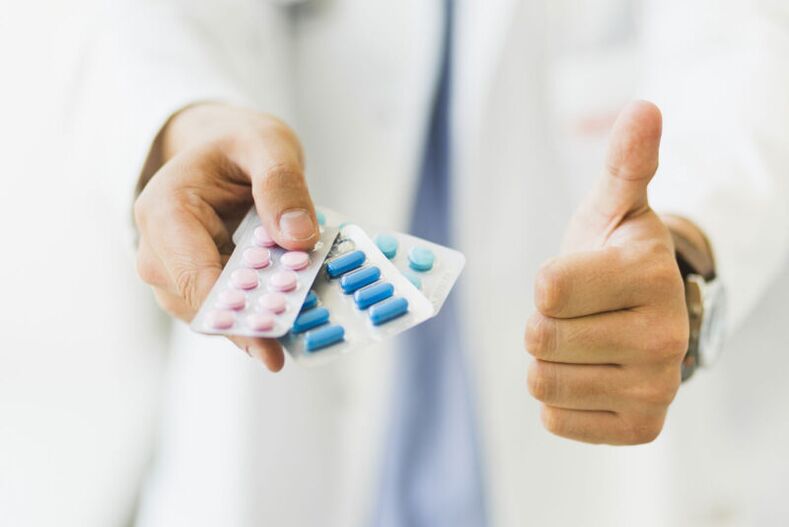
Physiotherapy and massage
The impact on the prostate during the chronic course of the disease includes the following procedures:
- electrophoresis;
- ultrasound;
- warm enemas;
- herbal baths;
- UHF;
- hirudotherapy;
- resonance therapy (microwave);
- inductothermy.
Rectal massage is performed for chronic and acute prostatitis. It can only be done by a proctologist or urologist. The duration of the course is 10-15 procedures. Thanks to physiotherapy, blood circulation in the pelvic organs is stimulated, lymph stagnation is eliminated and secretions are normalized, the excessive concentration of which causes inflammatory processes.
A group of drugs for the treatment of prostatitis
Drug therapy involves relieving inflammatory processes and restoring the body's protective functions. Without anti-inflammatory and immunomodulatory drugs, the complex of drugs for the successful treatment of prostatitis will not be complete.
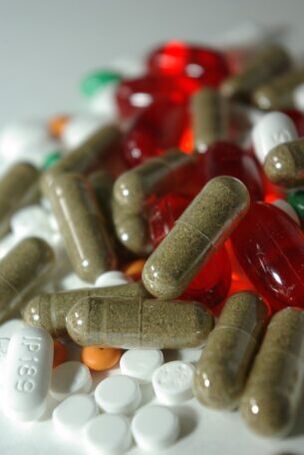
Anti-inflammatory medications
Chronic non-infectious prostatitis is treated with drugs that relieve pain and relieve inflammation. Anti-inflammatory drugs are often prescribed in suppositories. This allows the active substance to enter the prostate tissue directly.
For stagnant processes, bioactive agents that normalize prostate function are most often prescribed. Among the known medications should be noted:
- A remedy with prostate extract that reduces swelling and relieves inflammation. For the bacterial type, it is prescribed after a course of antibiotics, and for the chronic type, it is taken for a long time to achieve the results described above.
- Candles based on natural extracts. The most popular are products based on propolis, bee waste, pumpkin seed oil and ichthyol.
The active ingredients of the medicine help to remove congestion and normalize the trophism of the prostate gland.
Drugs to increase immunity
Pathogenic microorganisms, when they multiply, weaken the immune system, which becomes vulnerable and copes worse with treatment. For it to work fully, the specialist prescribes immunomodulators. A drug with a high zinc content is usually prescribed, which destroys pathogenic microflora, as well as herbal preparations, for example, echinacea extract.
These drugs help prevent periods of exacerbation of chronic prostatitis. The listed tablets are often supplemented with vitamin complexes. They are designed to support the normal functioning of the immune system and help the body better cope with the disease.
When is surgery required?
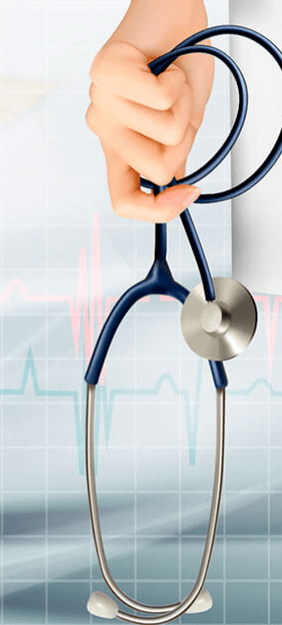
Complex therapy, unfortunately, is not always effective. In the advanced stages of the disease, it is impossible to do without surgery. It is described in the following cases:
- acute abscesses that cannot be removed without surgery;
- obstruction of urine due to narrowing of the urethral canal;
- the development of prostatic hyperplasia.
A premature operation in the situations listed above leads to the most serious consequences, including death.
Folk remedies for the treatment of prostatitis
Homeopathy is part of a comprehensive treatment of chronic prostatitis without abandoning medication and other conservative methods. Medicinal herbs help to soothe and improve the condition, as well as being a supplier of valuable nutrients.
Careful!The total duration of the course of taking various herbal medicines should not exceed three months. Longer use will lead to mucosal irritation.
nettles
The plant has a positive effect on the male body and relieves the symptoms of the disease. Regular consumption of nettle improves potency and improves reproductive function. It is prescribed to prevent tumors, to reduce the risk of developing cancer, prostate adenoma. The diuretic effect helps men with urinary disorders.
The following types of medicines are prepared from nettles:
- Pour a tablespoon of finely chopped nettle into a glass of vodka, leave for 3 weeks, filter. Take 2 teaspoons three times a day before meals.
- Pour 6 spoons of nettle seeds into 0. 5 liters of port wine, boil for 5 minutes, cool, filter. Use 3 times a day.
- Take the ingredients as in the first recipe, but leave for 3 weeks, shaking them occasionally. Drink 20 ml of the solution every day until it runs out.
- The leaves are brewed as a tea and drunk after steeping for 10 minutes. Add some lemon and honey.
A decoction of the roots can be used for compresses to relieve pain. It is prepared according to the following scheme:
- crushed nettle and nettle bark are taken in equal proportions;
- mix the ingredients and get 8 grams;
- pour a liter of boiling water, leave for 10 minutes in a water bath;
- let it bake for 30 minutes.
This medication can be drunk a glass 4 times a day, as well as used as a lotion.
Men suffering from nettle allergies, atherosclerosis, kidney failure and varicose veins should avoid nettle. Care should be taken by those who have problems with the cardiovascular system.
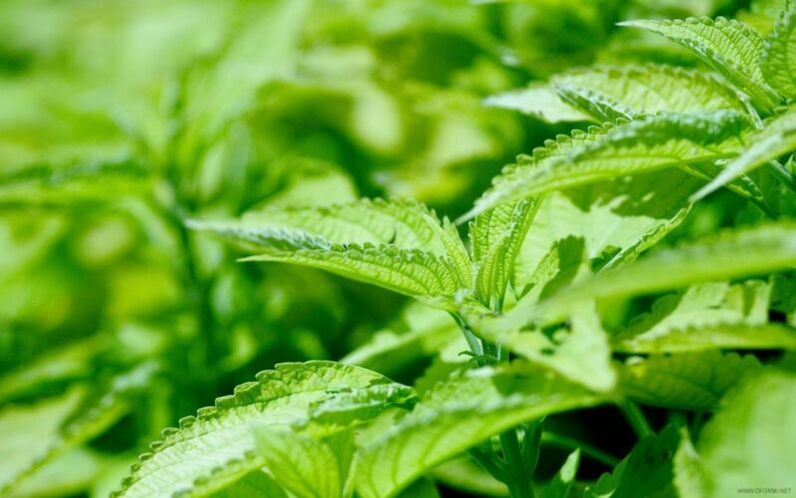
Plantain
It has an antibacterial, anti-inflammatory, regenerative, analgesic effect. Plantain is rich in vitamins, tannins and polysaccharides. For therapeutic purposes, take an infusion of plantain leaves:
- Pour a tablespoon of dried leaves into a liter of boiling water.
- Simmer on low heat for about 10 minutes.
- Let it cool and take money every meal.
The product should not be used by those suffering from thrombosis, problems with the gastrointestinal tract or individual intolerance.
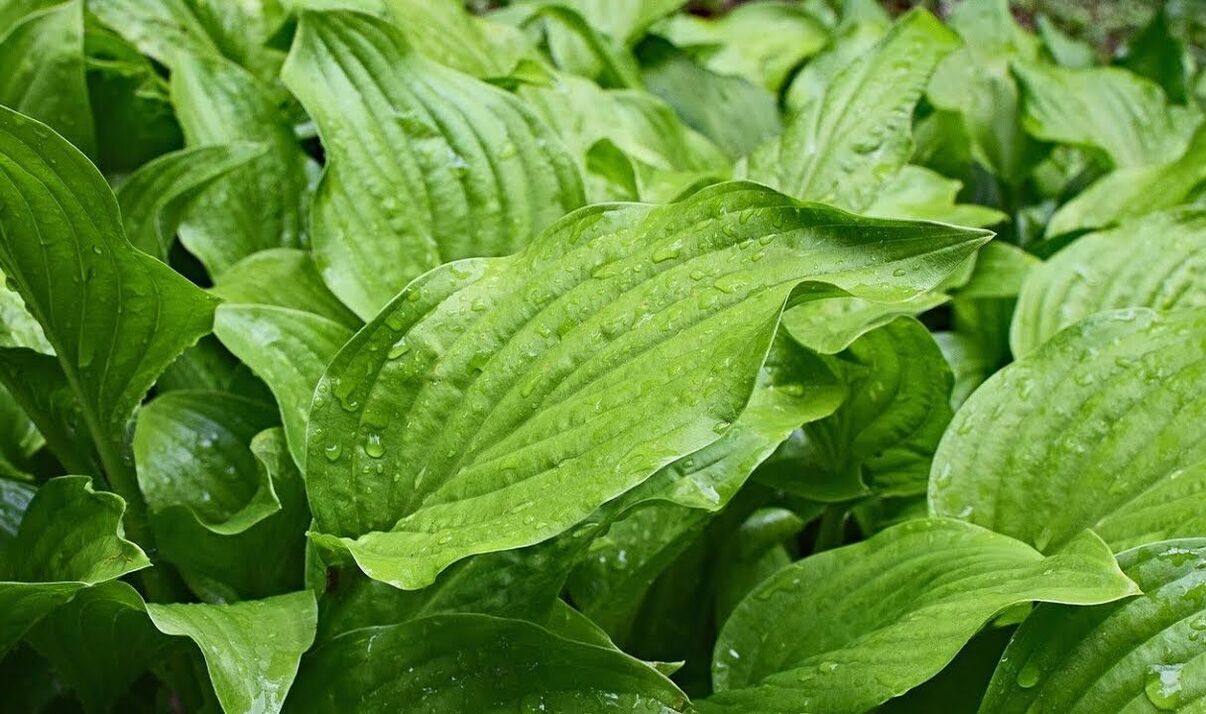
Ginseng
The medicinal plant is a natural aphrodisiac that has a multifaceted effect on the urinary and reproductive system. Its use has the following positive effect:
- improves sperm stability and mobility;
- increases the production and quality of seminal fluid;
- eliminates inflammatory processes;
- restores hormonal levels;
At different stages of prostatitis, medications prepared according to the following recipes are used:
- The root is poured with 70 percent alcohol in a ratio of 1: 10. Put it in a dark place for 2 weeks. Drink ½ teaspoon three times a day before each meal. The duration of the course is one month.
- Add 2 tablespoons of ground ginseng root to 700 g of natural honey and leave for 7-10 days. Take a tablespoon before bed.
Ginseng is contraindicated for hypertension, nervous disorders, high fever, infections, inflammation and taking a course of antibiotics. It should not be taken by persons under 16 years of age.
Failure to comply with the dosage can lead to lack of sleep, an allergic reaction, dizziness, headache, nausea, pressure changes, nervous excitement and tachycardia.
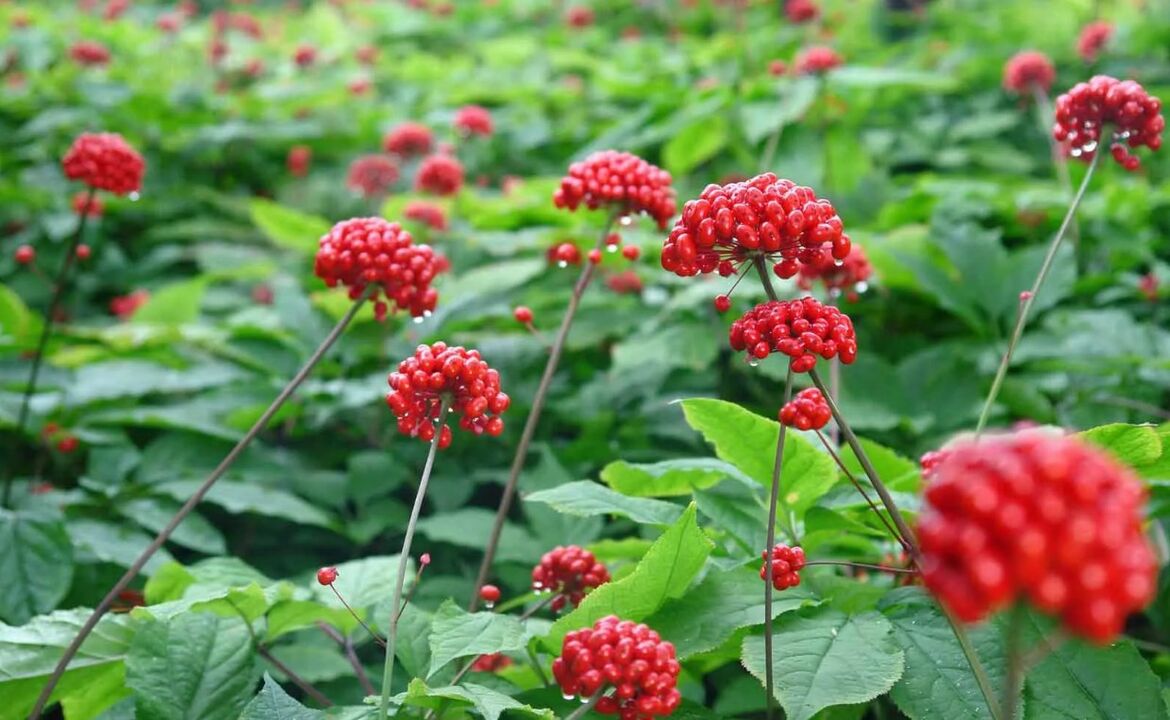
sage
The plant has a disinfectant, anti-inflammatory and antibacterial effect. It prevents internal bleeding and can be used in the following variations:
- bathrooms. Take 5 parts each of celandine, string, toadstool, birch, rose, bearberry, blackcurrant and lilac). Add 10 parts oats and sage. Pour boiling water, leave for 1-2 hours, pour in water.
- Enema. Add 12 g of the herb (2 tablespoons) to half a glass of boiling water and leave for 20 minutes. Add 10 parts of dimethyl sulfoxide to the total amount of solution, cool to 40 degrees. The course of treatment is 10-15 procedures.
- Infusion. Pour 200 ml of water, taken in equal parts, sage and cane roots, steam for 30 minutes. Drink the product in the morning and in the evening, dividing it into 2 parts.
Careful!Enemas can only be done after consulting your doctor. This is a rather serious procedure, considering the symptoms and course of prostatitis.
Sage is contraindicated in acute nephritis and epileptic seizures. It should not be used if there is a barking cough.
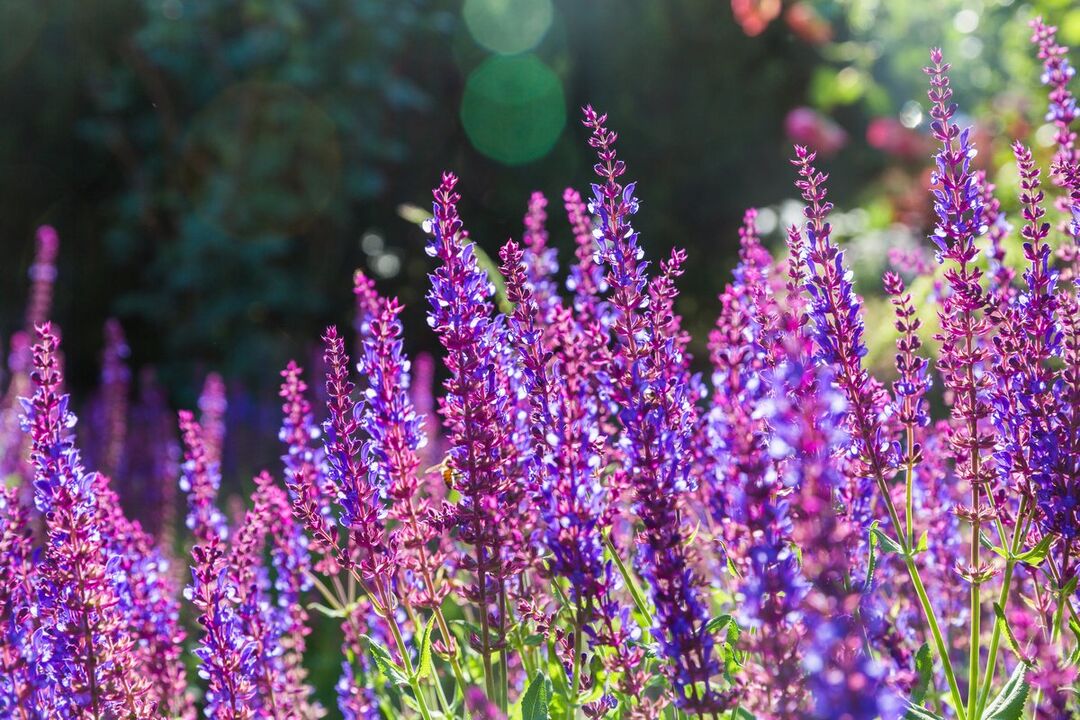
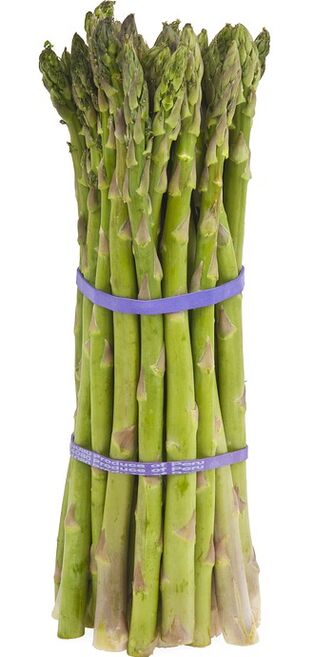
Nutrition and lifestyle
It is not enough just to take a set of medications prescribed for prostatitis; it is necessary to fundamentally revise your entire exercise routine. It requires a radical overhaul. The success of prostatitis treatment and the prevention of repeated problems in the functioning of the prostate gland depend on proper nutrition and a balanced daily routine.
A man should:
- get rid of bad habits (alcohol, cigarettes);
- give up "empty" calories (fast food and unhealthy foods) in favor of vegetables and fruits;
- start leading an active lifestyle, visit the gym, swimming pool, take walks more often, try to spend more time walking than driving.
An important factor is mental and mental health. Stressful situations should be avoided both at home and at work. It is especially important to keep a sleep schedule. A man should sleep at least eight full hours a day.
Prevention of prostatitis
To keep the prostate gland healthy, a man only needs to follow a few simple rules:
- carefully monitor intimate hygiene, following all rules and recommendations;
- avoid hypothermia by dressing carefully and warmly in the cold season, for example, wear fleece underwear;
- have a regular sex life with a regular partner, avoiding short-term relationships;
- visit a specialist at least twice a year if you have already had prostatitis once.
The more correct a lifestyle a representative of the stronger sex leads, the lower the risk of developing prostatitis.



















